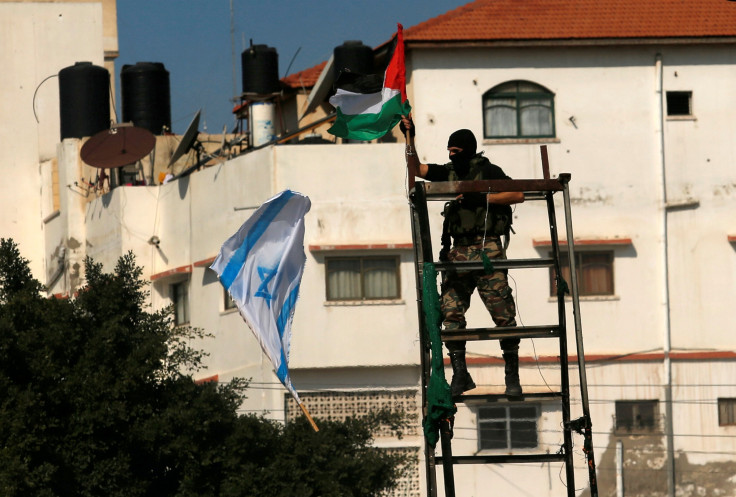Will Trump Move US Embassy To Jerusalem? Israeli Settlements In Palestine Could Spark New War In Middle East

Israel announced Tuesday plans to build an additional 2,500 settlements in the Palestinian West Bank, angering Palestinians who have threatened major unrest over Washington's proposal to move the U.S. embassy to the disputed city of Jerusalem.
Israeli defense officials said the move was necessary to "maintain regular daily life" and would extend to Palestinian lands captured by Israel after a 1967 war fought between Israel and its Arab neighbors. Nabil Abu Rdainah, a spokesperson for Palestinian President Mahmoud Abbas, said the move further damaged relations between Israel and Palestine.
"The decision will hinder any attempt to restore security and stability," Rdainah said Tuesday, according to Reuters. "It will reinforce extremism and terrorism and will place obstacles in the path of any effort to start a peace process that will lead to security and peace."
Last month, former Secretary of State John Kerry condemned Israel's policy of settlement building on Palestinian land, urging Israel to comply with international law and advocating for greater dialogue between Israeli and Palestinian leaders. There are reportedly over half a million Israeli settlers living on Palestinian territory in the West Bank and Israeli-occupied East Jerusalem, which both Israelis and Palestinians contend is their rightful capital.
The U.S. is by far Israel's largest ally in terms of political and military assistance, however, Washington consistently recognized Tel Aviv as the country's capital, not the city of Jerusalem as Israeli hardliners insisted. President Donald Trump, who referred to Jerusalem as "the eternal capital of the Jewish people" at his address last March to the influential American Israeli Political Affairs Committee, said he planned to change the long-standing U.S. policy, angering local Palestinians.
The Palestinian Liberation Organization (PLO), the political representative of Palestine's national aspirations, said it would revoke its recognition of the State of Israel and reconsider a number of other strategic relationships between Ramallah, the formal Palestinian capital, and Tel Aviv if Trump and Israeli Prime Minister Benjamin Netanyahu followed through with the plan.
"The leadership has considered a number steps agreed to be taken in the event that President Donald Trump's administration proceeds to move the U.S. Embassy from Tel Aviv to Jerusalem," PLO Executive Committee member Ahmed Majdalani told London-based, Arabic-language newspaper Al Araby Al Jadeed Monday. "These steps begin with withdrawing PLO recognition of Israel, then analyzing our economic agreements and stopping our security cooperation."
Other influential Palestinians felt the embassy move could bring a new "intifada" or violent uprising to the city, considered holy by the three, major Abrahamic religions. Sheikh Ikrima Said Sabri, head of the Supreme Islamic Council and imam at the revered Al-Aqsa Mosque, referred to "another eruption in the region" if the embassy was moved, telling Middle East Eye Monday that it would violate Palestinian's rights as Muslims and Christians to the city. Archbishop Theodosios, the Greek Orthodox Patriarchate of Jerusalem, said he doubted Trump would go through with the move, but threatened to take action if he did.
"As Palestinian Christians and Muslims, we will not allow this encroachment and we will not allow the U.S. embassy to reside in Jerusalem," he said.
Prominent Iraqi Shiite cleric Moqtada al-Sadr said Tuesday that moving the U.S. embassy to Jerusalem was a "declaration of war" and called for the closure of Washington's embassy in Iraq in response to Trump's proposal, according to Iraqi Kurdistan's Rudaw English media outlet.
Israel first claimed West Jerusalem as its capital when the state was established in 1948, following the Arab-Israeli War. Jordan then administered both the West Bank and East Jerusalem until another war broke out in 1967, after which Israel effective annexed the entire city, defying international protests. Israelis claim Jews have a religious right to the city, while Palestinians say they are the rightful inhabitants and were subjected to mass expulsions during Israel's creation.
© Copyright IBTimes 2025. All rights reserved.






















